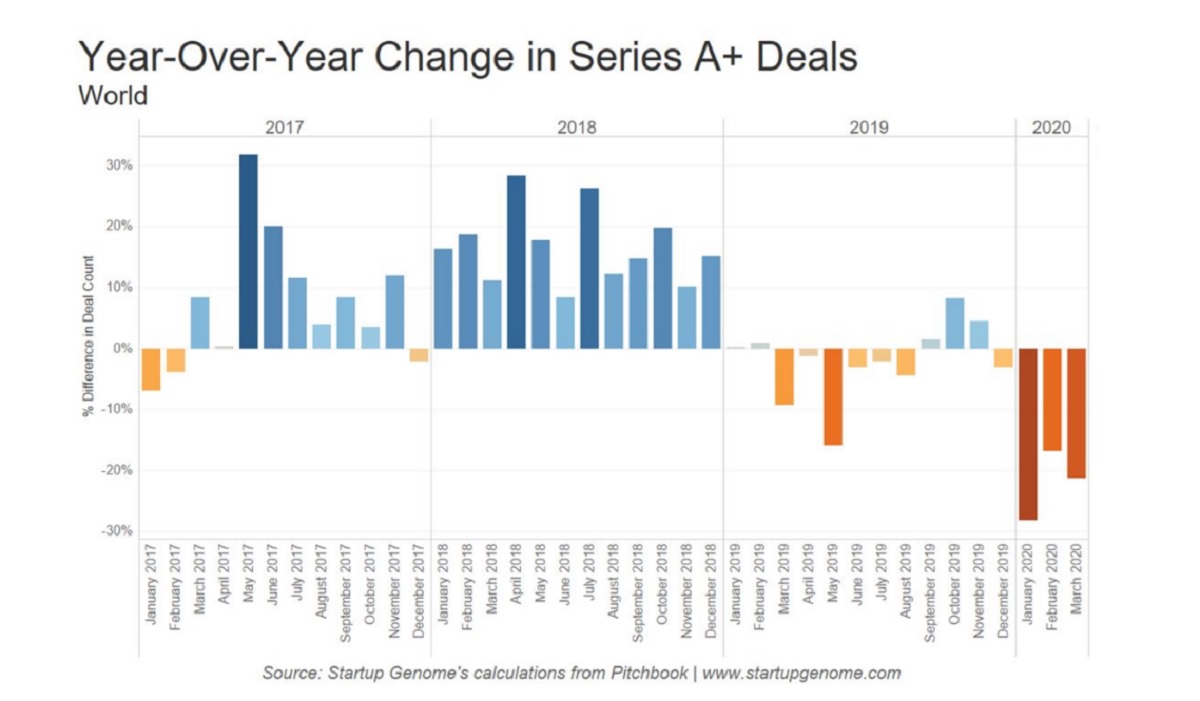Global venture capital funding has dropped by 20% since the onset of the coronavirus crisis in December 2019, according to a new report by Startup Genome.
The drop was even more pronounced in China, where the pandemic began. China had a drop of over 50% in funding relative to the rest of the world in January and February. The country did see a rebound in March, although with numbers still lower than pre-crisis levels, Startup Genome said.

Unlock premium content and VIP community perks with GB M A X!
Join now to enjoy our free and premium membership perks.
![]()

![]()